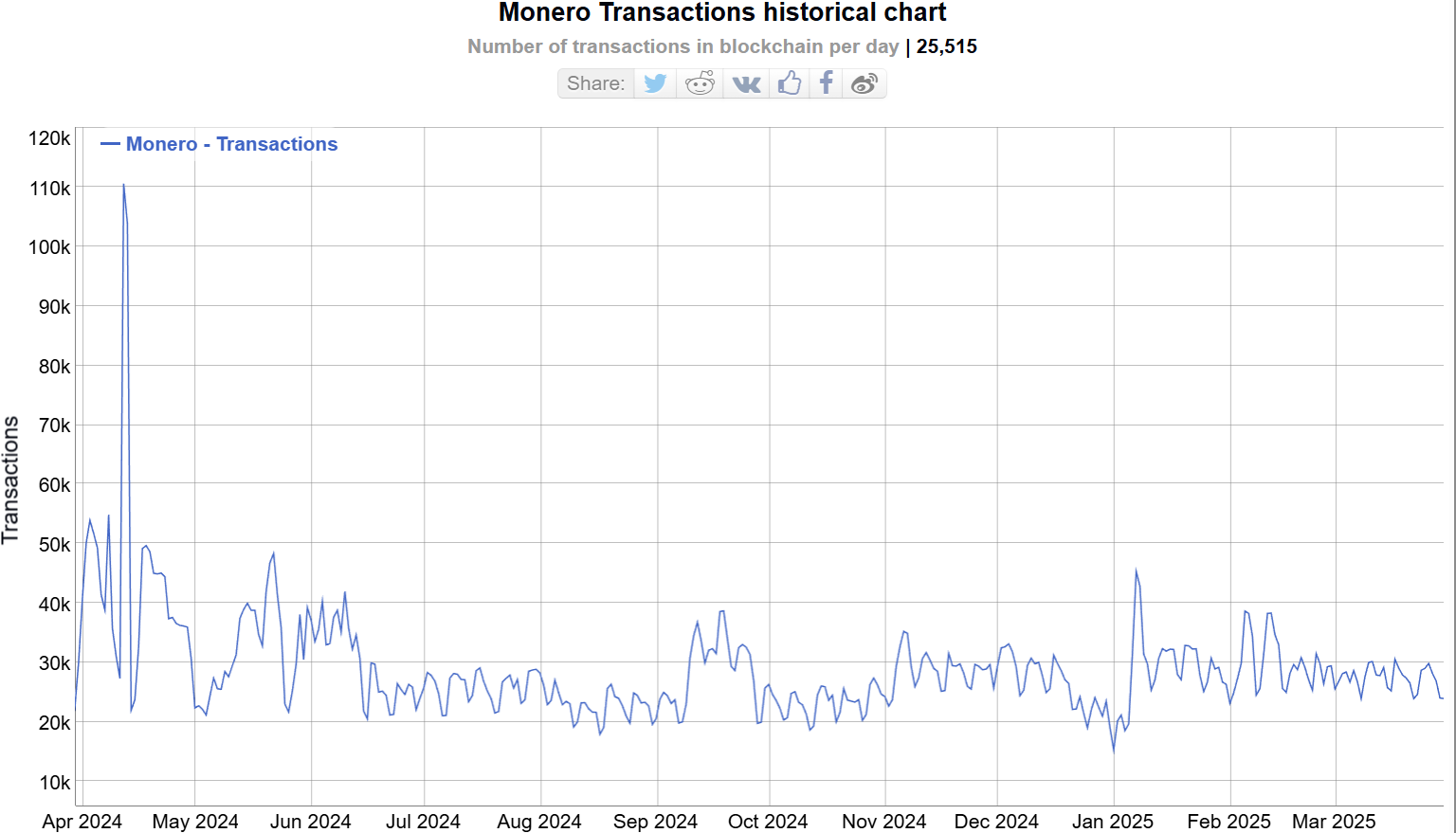
Darknet markets are increasingly returning to bitcoin (BTC) as their primary cryptocurrency because of rising liquidity and accessibility challenges associated with privacy-focused coins like monero (XMR), according to Eric Jardine, cybercrime research lead at Chainalysis.
"After major exchanges delisted XMR, we observed a significant increase in bitcoin inflows," Jardine said in an interview with CoinDesk. "Reduced accessibility is steering users back toward bitcoin."
Many Western markets on the darknet — a part of the internet hosted within an encrypted network and accessible only through specialized anonymity-providing tools — had either fully moved to monero or operated with it in parallel with bitcoin before the delistings. XMR dropped off after it was removed from major exchanges.
OKX removed XMR and other privacy-focused tokens including dash (DASH) and ZCash (ZCH) at the end of 2023. Binance announced in February 2024 that it planned to de-list monero.
"When a coin or token no longer meets this standard, or the industry changes, we conduct a more in-depth review and potentially delist it," Binance said at the time.
On-chain data from BitInfoCharts shows that the daily number of monero transactions has halved from this time last year.

"In order to be an effective kind of medium of exchange, you need a certain amount of liquidity and a certain amount of accessibility," Jardine said.
Jardine emphasized that illicit cryptocurrency transactions represent only a minor share of total crypto activity.
"Typically, illicit transactions constitute at or below 1% of total crypto activities. While addressing these issues is essential, broadly labeling crypto negatively is inaccurate and counterproductive."
Chainalysis data shows that about 0.14% of all transactions in crypto, some $50 billion, involve illicit activity, with a rise in stablecoins as an illicit payment mechanism.
The stablecoin issuers are fighting back, with the Tron-led T3 Financial Crime Unit, a group comprising of Tron, USDT-issuer Tether and TRM Labs freezing over $100 million in illict funds.
Jardine also noted that law-enforcement agencies prioritize darknet markets primarily based on their scale and involvement in the fentanyl trade.
Its presence significantly escalates the likelihood of a darknet market attracting law enforcement attention, he said, because fighting the drug is a priority for international law enforcement.
"Markets have sort of varying levels of sensitivity to fentanyl-related sales," he said. "Some claim they don't do it, then don't police vendors; some claim they don't do it, but then they do. Some will be selling precursor products but not finished products."
Indeed, one of the most recent darknet market busts was the Nemesis online market. The U.S. Department of the Treasury’s Office of Foreign Assets Control (OFAC) specifically cited the market's role in the fentanyl trade as a reason for the bust.
And, as a result, OFAC sanctioned a number of crypto wallets tied to its operator, Behrouz Parsarad: 44 BTC addresses and 5 XMR wallets.
免责声明:本文章仅代表作者个人观点,不代表本平台的立场和观点。本文章仅供信息分享,不构成对任何人的任何投资建议。用户与作者之间的任何争议,与本平台无关。如网页中刊载的文章或图片涉及侵权,请提供相关的权利证明和身份证明发送邮件到support@aicoin.com,本平台相关工作人员将会进行核查。




